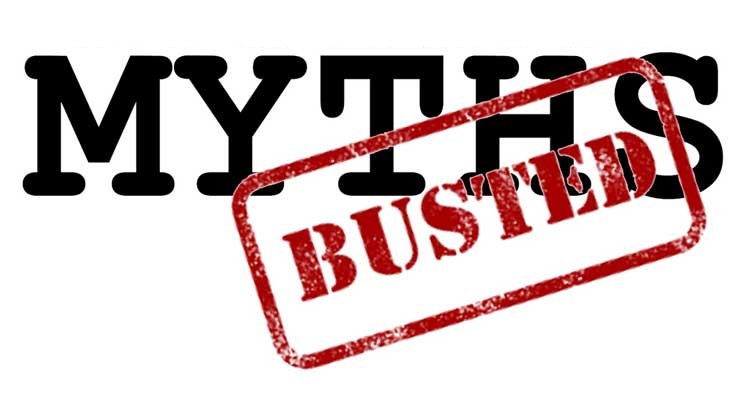If you didn't see the first one, you can read it here.
There are plenty of common myths and misunderstandings about autism that are circling around, so let's bust a few more! Reminder that I am #ActuallyAutistic too.
Myth #4 - Everyone Is On The Autism Spectrum
This is a somewhat common misunderstanding of the phrase "autism spectrum". What you may have heard people say before is something along the lines of, "We're all on the spectrum somewhere, right?" Or, "Everyone's a little bit autistic!"
But no. These people might be meaning well, and trying to be empathetic by relating to someone who is autistic, and bridging the gap between them - demonstrating shared experiences, etc. But this misunderstanding misses two crucial truths about autism.
Firstly, the phrase "autism spectrum" isn't talking about a sliding scale from 'Not Very Autistic' to 'Very Autistic'. Rather, it's talking about how people with autism present in a wide variety of ways, but they are all autistic - there is a spectrum of differences within autism, but they are all still autism. This article does a really great job of explaining this point.
Secondly, it dismisses the actual difference in how the brain works between autistic and non-autistic people. This comes back to the idea of neurodiversity - if you're autistic, your brain is measurably different in a scientific way to non-autistic people. So if someone tries to say that "everyone's autistic" - they're denying this fundamental point of difference, and saying that it doesn't matter (whether they're doing it deliberately or not). It's like saying to someone with depression that we all get a bit sad, or to someone with chronic fatigue that we all find it difficult to get out of bed in the morning. There's a fundamental difference, and you're delegitimising these things by acting in this way.
Myth #5 - Autism Can Be Cured
Yeah, I'm going there. This one is incredibly controversial (and understandably so).
Let's start with the word "cure". If something can be "cured", then it's a disease, or something similar (or a meat, but that's a different definition!). Obviously, most autistic folks take issue with autism being called a disease. Even the current terminology - a "disorder" - isn't great. It's talking about something being inherently wrong, or bad, or negative in some way. And while many autistic people do face challenges that neurotypical folks don't - neurotypical folks also have challenges that we don't. We just happen to live in a world that's been (mostly) built for neurotypical people, so that tips the scales rather a bit against us, and so our challenges are a bit more obvious.
But, getting into the actual question itself - could autism be somehow "fixed", could someone that was autistic be made non-autistic? It's doubtful. Autism is an extremely complex neurological condition that we're still exploring and understanding - trying to make someone "not autistic" would probably mean fiddling around in people's brains, not just with genes; both of which are challenging and have their own issues.
And even if we could - would we want to? I can't speak for all autistic folks, but I know for me, I wouldn't. I think I know many others that are similar. Would we like more help to deal with the challenges that we face, or to see those challenges go away? Heck yes. But autism is more than just the challenges that we face - it's also many of the strengths that we have. It's an intrinsic part of who we are, our identity as people. Any idea of "curing" it or changing it is.....problematic, at best.
Myth #6 - Autistic People Are All Computer Nerds
This one is probably thanks in large part to pop culture and mainstream media.
Yes, many computer nerds are quite possibly autistic. You have the classic aspects of finding it easier to connect with people online because of reduced need to interpret social cues, and the ease of finding similar interest groups. Many people on the spectrum have found comfortable places online, and find those interactions easier than in-person interactions. But that's also not all autistic people - and again, why we call it a spectrum.
You can also find many autistic people in acting. After all, they mask all day - this is just them being paid to do the same thing! Easy. There are also many autistic folks in art, writing, music, and other creative fields - we often have a unique view of things that's a bit off-kilter to how most people see the world, and that helps quite a bit with creativity. I know autistic people that are teachers, on radio, running their own business, and in a dozen other different sorts of jobs or passions. You'll find us in most places - yes, in some more than others, but we're more widespread than you might expect. We're not just science/maths/computer nerds (not to say anything against those sorts of people, you're awesome! Just reiterating that that's not all autistic folks are).
------
That's another three done and dusted. Keen to hear your thoughts on these so far, and any more autism myths you'd like to see busted. I think that's all I have for right now, but always happy to do more! :)
